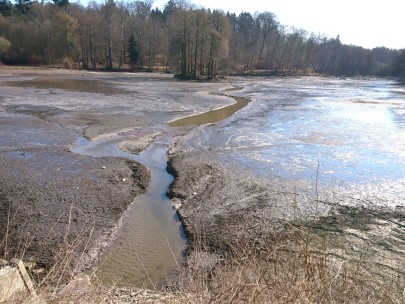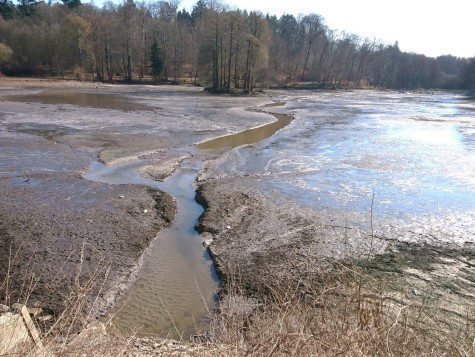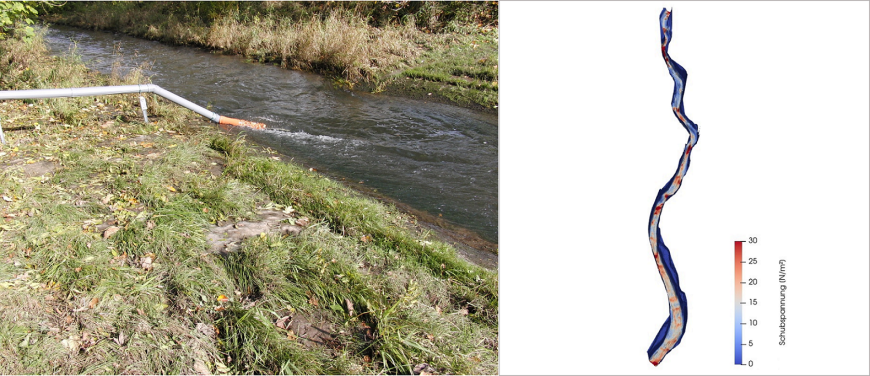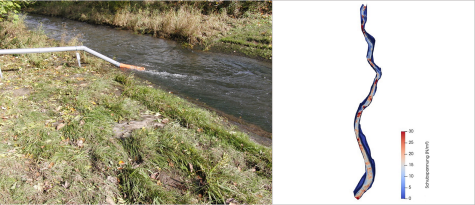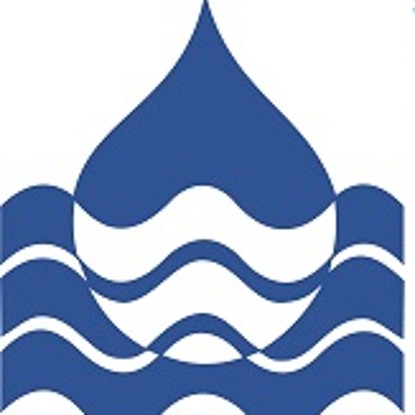Artificial impoundments are indispensable for water management in order to buffer the fluctuating water supply. However, the transverse structures required for this purpose retain the sediments carried along in the watercourse, which leads to continuous sedimentation of the reservoir if no countermeasures are taken. Sedimentation reduces the available storage volume and consequently the possibility of flow regulation, which is urgently needed in times of climate change. In the worst case, this results in the loss of the original functions of the reservoir (water supply, energy production, flood protection). In addition, outflow organs or cooling circuits of the turbines can be clogged by sediments and the maintenance costs of the hydraulic machines can be greatly increased due to abrasion. Furthermore, since 2015, the Water Framework Directive also requires passability for sediments for a very good status of flowing waters. From a water management point of view, research and application of effective countermeasures is therefore essential. For this purpose, special environmentally compatible methods adapted to the respective reservoir are required, which combine efficient reservoir desedimentation with ecologically compatible sediment continuity.
The Department of Hydraulic Engineering offers scientific accompanying studies for the site-related selection of measures. These include a survey of the hydrological, morphological and structural conditions, the analysis of potential measures with regard to desedimentation efficiency and environmental impact by means of numerical modeling, and the resulting definition of a suitable target measure. The implementation of the measures is accompanied by monitoring to ensure efficiency and environmental impact. For this purpose, multi-parameter probes are used to measure the essential parameters (in particular oxygen content, temperature, turbidity).



